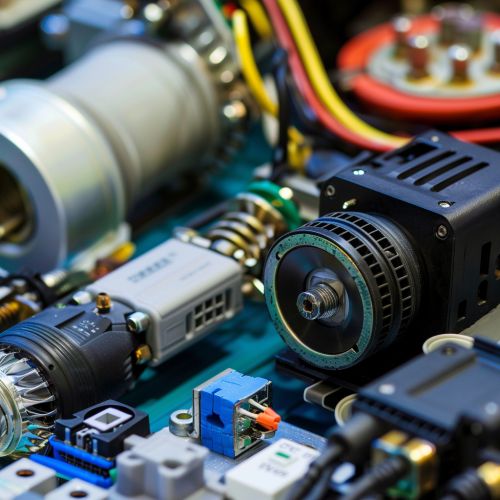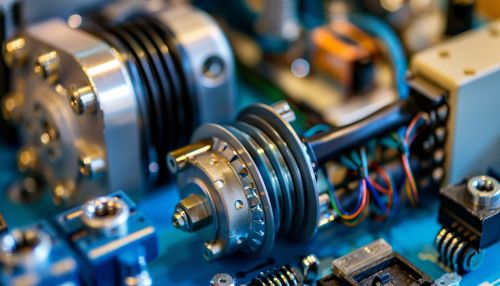Motor circuit
Overview
A motor circuit is a type of electrical circuit used to power and control electric motors. It consists of several components, including a power source, a motor, and a controller, which work together to convert electrical energy into mechanical energy. This conversion is essential for many applications, from small household appliances to large industrial machinery.
Components of a Motor Circuit
A motor circuit typically includes the following components:


Power Source
The power source provides the electrical energy needed to operate the motor. This can be a direct current (DC) source, such as a battery, or an alternating current (AC) source, such as a power grid. The type of power source used depends on the type of motor and the specific application.
Motor
The motor is the component that converts electrical energy into mechanical energy. There are several types of motors, including DC motors, AC motors, and servo motors, each with its own advantages and disadvantages.
Controller
The controller, also known as a motor controller, is a device that regulates the operation of the motor. It controls the speed, direction, and torque of the motor by adjusting the amount of current flowing through it. Controllers can be simple manual switches or complex microprocessor-based devices.
Types of Motor Circuits
Motor circuits can be classified into several types, depending on the type of motor they are designed to control.
DC Motor Circuits
DC motor circuits are designed to control DC motors. These circuits typically include a DC power source, a DC motor, and a DC motor controller. The controller can be a simple switch or a more complex device that can control the speed and direction of the motor.
AC Motor Circuits
AC motor circuits are designed to control AC motors. These circuits typically include an AC power source, an AC motor, and an AC motor controller. The controller can be a simple switch or a more complex device that can control the speed and direction of the motor.
Servo Motor Circuits
Servo motor circuits are designed to control servo motors. These circuits typically include a DC power source, a servo motor, and a servo motor controller. The controller is usually a complex device that can control the position, speed, and torque of the motor.
Applications of Motor Circuits
Motor circuits are used in a wide range of applications, from small household appliances to large industrial machinery. Some common applications include:
- Electric vehicles: Motor circuits are used in electric vehicles to control the speed and direction of the vehicle.
- Industrial machinery: Motor circuits are used in various types of industrial machinery to control the operation of the machines.
- Household appliances: Motor circuits are used in many household appliances, such as washing machines, dishwashers, and vacuum cleaners, to control the operation of the appliances.
